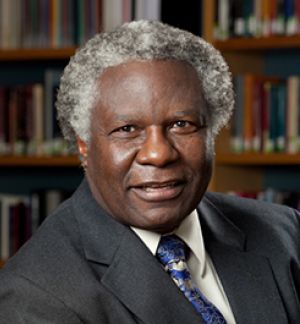United Nations Secretary General Kofi Annan has appointed former president Bill Clinton as special envoy on tsunami reconstruction. Clinton will bring his legendary fund-raising and interpersonal skills to this important assignment. These are the kinds of talents needed to reinvent the UN.
But these talents will not be enough without new ideas that bring the United Nations into the modern age. Take the Asian tsunami as an example. Much of the world’s discussion has focused on the location and control of a new early warning system. Though commendable, the efforts have failed to address one important point: human safety should be placed above appeals to national sovereignty.
The original outpouring of global empathy has degenerated into competition for control among nations and UN agencies over the proposed tsunami early warning system. Australia, Germany, Japan and the United States have all made unilateral proposals.
Furthermore, India, Indonesia and Thailand have failed to agree on the location of a regional centre for the system. In a defiant move to go it alone, Thailand’s Prime Minister Thaksin Shinawatra said: ‘‘We do not care whether any country does or does not agree. We will do it ourselves even though it will mean that Thailand has to invest alone with our own money.’’
The global community could benefit considerably from an effective system that promotes the sharing of knowledge and experiences from natural disasters, as suggested in Innovation: Applying Knowledge in Development, a report of the UN Millennium Task Force on Science, Technology and Innovation presented to the UN Secretary General last month.
Building on national efforts to promote global welfare is a critical element in any disaster management system. But such national systems can only be beneficial if they are part of an international mechanism that focuses on advancing human safety and not simply promoting national interest.
Tourist destinations are likely to be given priority in the post-tsunami reconstruction. These regions should be subject to international safety audits as well as the pilot for a new natural disaster management system that places safety above national considerations. The tsunami has demonstrated that the safety of tourist destination areas is a global matter that needs to be managed as such. Indeed, the desire of industrialised countries to put up early warning systems is partly inspired by the need to protect their nationals abroad. But this can only be effectively achieved through international cooperation.
Such an approach will require nations to agree to new standards that puts safety above national sovereignty. The UN World Tourism Organisation could provide initial leadership in defining a new foundation for human safety in a globalised world. Part of the tsunami funds pledged by governments should be used to conduct such safety audits.
The idea of surrendering part of national sovereignty in exchange for human safety or security is not new. The world could learn from leadership provided by the Montreal-based International Civil Aviation Organisation (ICAO) in conducting security audits around the world.
In 2002 ICAO launched a Universal Security Audit Programme to strengthen global aviation security. The audits identify deficiencies and provide suggestions for their mitigation or resolution. Under the programme, developing countries receive technical assistance to help meet international safety standards.
Today ICAO conducts three to four such audits around the world and expects to complete the initial audit of its member states by 2007. ICAO’s audits are mandatory. Disaster management systems could adopt similar approaches but on a voluntary basis.
For example, the reconstruction of tourist destination areas in the countries affected by the tsunami could benefit from such safety audits. This would also lay the foundation for sustainable reconstruction of the affected areas. Other areas of international significance could be added to the list upon agreement among governments and relevant non-state actors in an appropriate international forum.
A global early warning system will need to be integrated into the wide network of civilian communications systems that are flourishing as a result of advances in new and communications technologies. Doing so will demand greater international coordination and involvement of non-state actors such as environmental groups.
An early warning system without technical assistance to developing countries would only increase the available information but not necessarily enable nations and communities to reduce their vulnerability. An early warning system should therefore be part of a wider sustainable development strategy that includes the ability to cope with natural disasters.
The world needs to create a mosaic of disaster management systems that would integrate existing information and communications capabilities in military and civilian sectors. Doing so will go beyond the narrow interests of individual countries or United Nations agencies. Bill Clinton will have to bring to the United Nations more than just money and compromise: scientific knowledge is one of the building blocks for reinventing the UN.
Juma, Calestous. “UN as Global Science Repository.” The Indian Express, February 12, 2005




